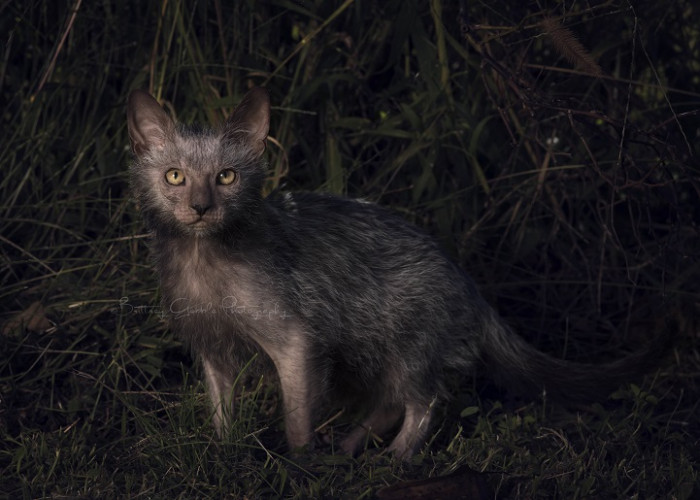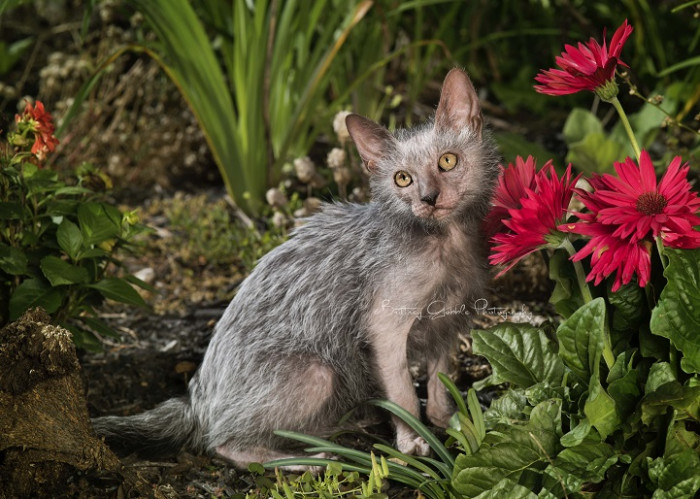Photographer Captures The Stunning Appearances Of Lyoki Cats AKA Werewolf Cats
In 2010, a woman delivered a peculiar litter of kittens to Tennessee-based veterinarian Dr. Johnny Gobble, who promptly ran a series of DNA, heart, skin, and other tests to ensure the health of the kittens and to attempt to figure out what they even were. Were the kittens related to the Sphynx or Devon Rex cat, or were they a distinctive, new breed of cat altogether?
Dr. Gobble, his wife Brittney, and his associate Patti Thomas all reviewed the results of the extensive testing together and discovered they were looking at cats with a unique gene set, and thus an entirely new breed of cat was "born." The discovery of a new breed of cat, born of a naturally occurring genetic mutation, is utterly fascinating.
"Lyoki" means "wolves" in Greek, and the cats were given such a fascinating name because of their uncanny appearance, which is similar to how pop culture often depicts werewolves.

Lyoki cats are also nicknamed Werewolf Cats.

The naturally occurring genetic mutation arose from the shorthair breed, and UC Davis genetic testing has confirmed that there is no DNA evidence that Lyokis carry the Sphynx or Devon Rex gene at all.

Lykoi vary from completely covered in hair to partially hairless, and sometimes they lose their hair, which then grows back.

When Lyoki are fully coated, their hair has been compared to that of an opossum as well.

By now, over a decade later, standards for the breed have been established:
"Standards call for a solid black roan coat, a wedge-shaped head, and a lithe body of solid weight without excessive bulk."

Lyoki are considered friendly cats, with almost no challenging behaviors noted, and they are often revered as affectionate towards their owners.

While Lyoki cats are sometimes born to feral litters, there is currently a lot of intentional "outbreeding" still going on to ensure that inbreeding in the future is minimal at best.

According to Wikipedia:
"At the University of Tennessee, dermatologists examined them for any skin abnormalities. Along with biopsy samples of the skin, the dermatologists could find no reason for the coat pattern. What they did find is that some hair follicles lacked all the necessary components required to create hair (which is why Lykoi lack an undercoat).
They also found that the follicles that were able to produce hair lacked the proper balance of these components to maintain the hair (which is why Lykoi do molt and can become almost completely bald from time to time). It was determined, with test breeding, to be a true natural mutation."

Dr. Gobble's wife, Brittney, has been a photographer for a long time, and she took some of the most stunning photos of Lyoki kittens ever captured.
The couple has two daughters, and Brittany breeds and shows "top quality Sphynx cats."




